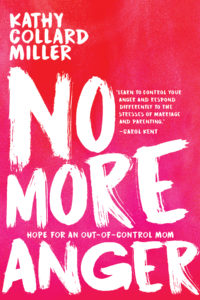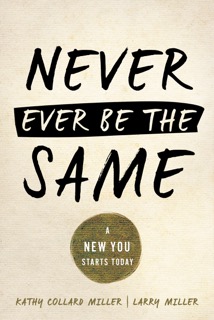How to Deal with Gossip—about You!
In this Attitude UPGRADE, Kathy Collard Miller addresses the wounding of gossip, and how godly people should respond when others' words hurt.
“Dealing with people who gossip about us is so difficult,” Kathy says. “But there is a way to have peace—through godly sorrow.”
I (Dawn) have to admit: I've never thought about gossip that way. But Kathy's insight is simply amazing ... and biblical!
Kathy continues . . .
I recently learned that someone criticized me to a group of people. Although I didn’t know this group of people, I felt deeply wounded that I was misrepresented.
I wanted to lash out at the gossiping person. Then I thought of the Apostle Paul’s response to his fellow Jews who were gossiping about him.
“I have great sorrow and unceasing anguish in my heart. For I could wish that I myself were accursed and cut off from Christ for the sake of my brothers, my kinsmen according to the flesh.” (Romans 9:2-3 ESV)
Because of that passage, I asked God to give me godly sorrow for that person—even at my own expense.
Asking myself three questions helped me have godly sorrow and peace.
1. Why might this person speak negatively about me?
The gossiping woman had been deeply wounded as a child and felt inadequate. She compared herself to everyone and always found herself lacking.
Her need to gossip, though sinning, wasn’t particularly about me. It was her sinful pattern to deal with her own insecurity. I felt offended, but being offended is because I’m believing the lie she told about me.
I truly believe most gossipers are motivated by their own broken self-image.
Most often those who listen to a gossiper can identify their motive. But even if they don’t, my worth and value is determined by God, not someone else’s words about me.
2. How can I love that gossiping person?
Although I wanted to confront that person, I was able to correctly evaluate God’s will because of the peace from godly sorrow in my heart.
Sometimes the Lord will lead us to confront that sinning person and we need to do it in love, not in haste and anger. Only seeing their broken heart and motives will give us the ability to love them for their good, not our defense.
My own sin of succumbing to the temptation of gossiping in the past helped me to forgive this woman. The Bible says we can forgive others who have hurt us because we have been forgiven (Colossians 3:13)
3. Why do I feel threatened?
That question might seem totally ridiculous, because the answer is she talked about me!
But there’s something deeper.
I felt a need to defend the halo around my reputation.
To make sure everyone knew I really am a good person.
But my peace came from knowing God is in charge of my reputation and He can defend me if He wants. Even if I go around trying to correct other people’s opinion of me, it will only cause me distress.
People choose what they want to believe. I can’t control that.
Have you been gossiped about? Have you gossiped?
- If we’re on the receiving end, we can trust God by knowing He is our defender.
- If we have gossiped, we need to ask God to forgive us and ask for forgiveness of the person we sinned against.
Either way, peace from godly sorrow will well up inside us—whether it’s the sin of others or our own.
Kathy Collard Miller is the author of over 50 books, her most recent is No More Anger: Hope  for an Out-of-Control Mom (Elk Lake Publishing). She loves to speak at
for an Out-of-Control Mom (Elk Lake Publishing). She loves to speak at  events and has spoken in over 30 US states and 8 foreign countries. Visit her: www.KathyCollardMiller.com.
events and has spoken in over 30 US states and 8 foreign countries. Visit her: www.KathyCollardMiller.com.
Graphic adapted, courtesy of Prixel Creative at Lightstock.
 1 Comment → Posted on
1 Comment → Posted on  Tuesday, May 15, 2018 at 7:10AM
Tuesday, May 15, 2018 at 7:10AM  Godly Sorrow,
Godly Sorrow,  Gossip,
Gossip,  Gossiping,
Gossiping,  Kathy Collard Miller,
Kathy Collard Miller,  Upgrade with Dawn Upgrade Your Life
Upgrade with Dawn Upgrade Your Life  Attitudes,
Attitudes,  Character,
Character,  Choices,
Choices,  Relationships
Relationships 
















